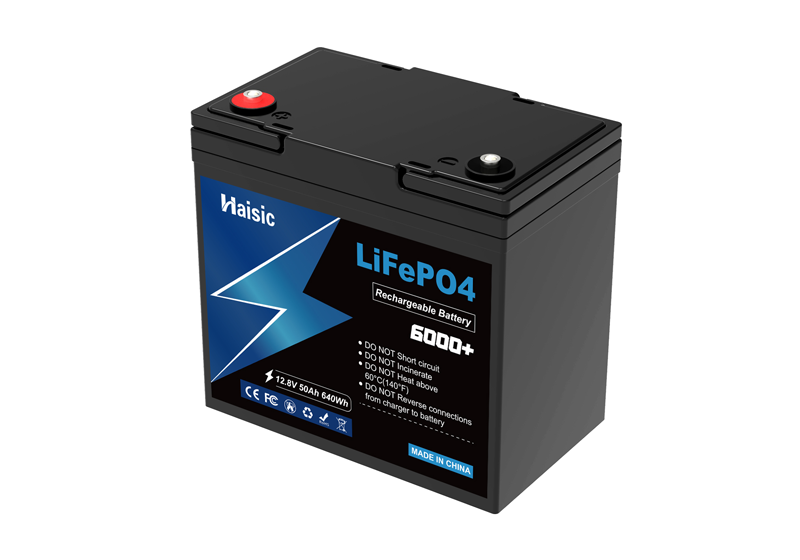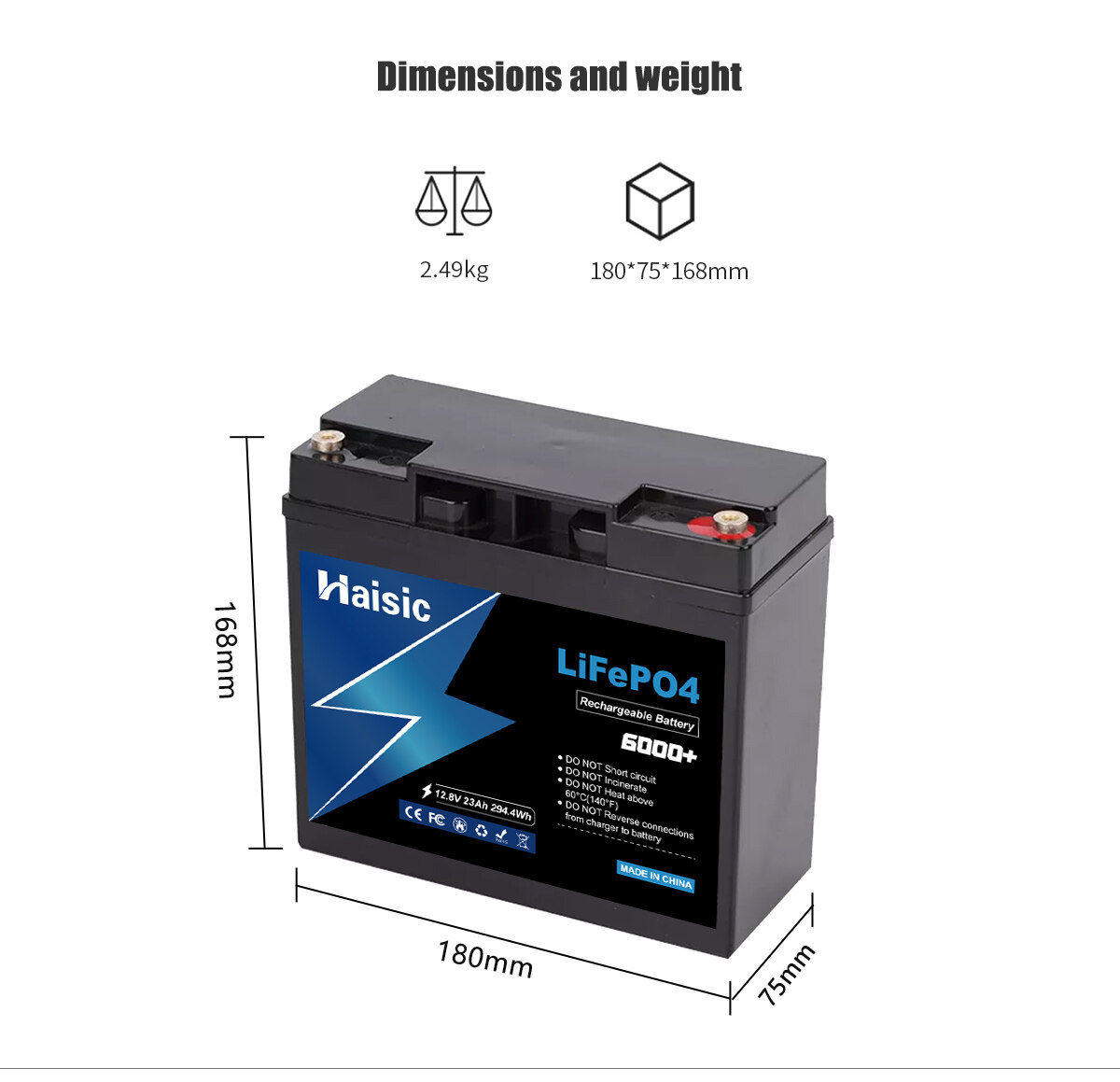Email format error
Email cannot be empty
Email already exists
6-20 characters(letters plus numbers only)
The password is inconsistent
Email format error
Email cannot be empty
Email does not exist
6-20 characters(letters plus numbers only)
The password is inconsistent


In recent years, the demand for efficient and reliable energy storage solutions has grown exponentially. One such solution that has gained significant attention is the 48 Volt LiFePO4 battery. This blog post aims to delve into the world of LiFePO4 batteries, exploring their features, advantages, applications, and future prospects. So, let’s embark on this electrifying journey!
Understanding LiFePO4 Batteries
1.1 What is LiFePO4?
LiFePO4, or lithium iron phosphate, is a type of rechargeable battery chemistry known for its high energy density, long cycle life, and enhanced safety features. It is composed of lithium, iron, and phosphate ions, which contribute to its stable and reliable performance.
1.2 How Does a LiFePO4 Battery Work?
LiFePO4 batteries operate on the principle of lithium-ion movement between the positive and negative electrodes during charging and discharging cycles. This movement of ions allows the battery to store and release electrical energy efficiently.
1.3 Key Features of LiFePO4 Batteries
LiFePO4 batteries offer several notable features, including:
High Energy Density: LiFePO4 batteries can store a large amount of energy in a compact size.
Long Cycle Life: LiFePO4 batteries can withstand a high number of charge and discharge cycles without significant degradation.
Enhanced Safety and Thermal Stability: LiFePO4 batteries are less prone to thermal runaway and are considered safer compared to other battery chemistries.
Fast Charging Capabilities: LiFePO4 batteries can be charged at a faster rate compared to other battery chemistries.
Wide Operating Temperature Range: LiFePO4 batteries can operate effectively in a wide range of temperatures.
Low Self-Discharge Rate: LiFePO4 batteries have a low self-discharge rate, allowing them to retain their charge for longer periods.
The Power of 48 Volts
2.1 Why 48 Volts?
The choice of 48 volts as a standard voltage for LiFePO4 batteries is driven by various factors, including efficiency, safety, and compatibility with existing systems. This voltage level strikes a balance between power delivery and system complexity, making it an ideal choice for numerous applications.
2.2 Advantages of 48 Volt LiFePO4 Batteries
The advantages of 48 volt LiFePO4 batteries are manifold, including:
Higher Energy Efficiency: 48 volt systems offer higher energy efficiency compared to lower voltage systems, resulting in reduced power losses.
Reduced Power Losses: Higher voltage systems experience lower power losses during transmission and conversion, resulting in improved overall system efficiency.
Lower Current Requirements: Higher voltage systems require lower current levels to deliver the same amount of power, reducing resistive losses and allowing for the use of smaller conductors.
Enhanced System Reliability: 48 volt systems provide a more stable and reliable power supply, reducing the risk of voltage drops and power interruptions.
Compatibility with Existing Infrastructure: 48 volt systems can be easily integrated into existing infrastructure, making them a cost-effective solution for upgrading or retrofitting existing systems.
Cost-effectiveness: 48 volt LiFePO4 batteries offer a cost-effective solution for energy storage, providing a balance between performance and affordability.
2.3 Comparison with Other Voltage Systems
When it comes to energy storage systems, different voltage levels are used depending on the specific application requirements. Now, we will compare the 48 volt LiFePO4 battery system with other common voltage systems, such as 12 volts and 24 volts, to understand why 48 volts is a preferred choice for various applications.
12 Volt Systems:
Advantages:
Widely Available: 12 volt batteries are commonly used in automotive applications and are readily available in the market.
Lower Cost: 12 volt batteries are generally more affordable compared to higher voltage systems.
Simplicity: 12 volt systems are relatively simple and easy to install.
Limitations:
Power Limitations: 12 volt systems have lower power output compared to higher voltage systems, which can limit their use in applications that require higher power demands.
Voltage Drop: Due to the lower voltage, 12 volt systems are more susceptible to voltage drops over longer distances, resulting in power losses.
Inefficiency: Higher current is required to deliver the same amount of power, leading to higher resistive losses and reduced overall system efficiency.
24 Volt Systems:
Advantages:
Higher Power Output: 24 volt systems offer higher power output compared to 12 volt systems, making them suitable for applications with higher power demands.
Reduced Voltage Drop: 24 volt systems experience less voltage drop compared to 12 volt systems, resulting in lower power losses.
Improved Efficiency: Higher voltage allows for lower current requirements, reducing resistive losses and improving overall system efficiency.
Limitations:
Availability: 24 volt batteries may not be as widely available as 12 volt batteries, which can limit their use in certain applications.
Cost: 24 volt systems can be more expensive compared to 12 volt systems due to the higher voltage components required.
Complexity: 24 volt systems may require additional components and wiring compared to 12 volt systems, increasing the complexity of the installation.
48 Volt LiFePO4 Systems:
Advantages:
Higher Energy Efficiency: 48 volt systems offer higher energy efficiency compared to lower voltage systems, resulting in reduced power losses.
Reduced Power Losses: Higher voltage systems experience lower power losses during transmission and conversion, resulting in improved overall system efficiency.
Lower Current Requirements: Higher voltage systems require lower current levels to deliver the same amount of power, reducing resistive losses and allowing for the use of smaller conductors.
Enhanced System Reliability: 48 volt systems provide a more stable and reliable power supply, reducing the risk of voltage drops and power interruptions.
Compatibility with Existing Infrastructure: 48 volt systems can be easily integrated into existing infrastructure, making them a cost-effective solution for upgrading or retrofitting existing systems.
Cost-effectiveness: 48 volt LiFePO4 batteries offer a cost-effective solution for energy storage, providing a balance between performance and affordability.
Limitations:
Availability: While 48 volt systems are becoming more common, they may not be as widely available as 12 volt systems in certain markets.
Complexity: 48 volt systems may require additional components and wiring compared to lower voltage systems, increasing the complexity of the installation.
Applications of 48 Volt LiFePO4 Batteries
3.1 Electric Vehicles
The automotive industry has witnessed a significant shift towards electric vehicles (EVs) in recent years. The 48 volt LiFePO4 battery system offers a compelling solution for EV manufacturers, providing higher power output, longer range, and improved safety. The higher voltage allows for faster charging and discharging, enabling EVs to achieve better performance and efficiency.
3.2 Renewable Energy Systems
Renewable energy sources, such as solar and wind, require efficient energy storage solutions. The 48 volt LiFePO4 battery system proves to be an excellent choice for storing excess energy generated by renewable sources, ensuring a stable and reliable power supply. These batteries can be used in residential, commercial, and utility-scale applications, enabling the integration of renewable energy into the grid.
3.3 Telecommunications
Telecommunication networks rely on uninterrupted power supply for seamless operation. The 48 volt LiFePO4 battery system offers high energy density, long cycle life, and rapid charging capabilities, making it an ideal choice for telecom backup power systems. These batteries provide reliable power backup during grid outages, ensuring uninterrupted communication services.
3.4 UPS Systems
Uninterruptible Power Supply (UPS) systems are crucial for providing backup power during grid outages. The 48 volt LiFePO4 battery system offers superior performance, longer lifespan, and enhanced safety features, ensuring uninterrupted power supply for critical applications. These batteries can be used in data centers, hospitals, manufacturing facilities, and other mission-critical environments.
3.5 Marine and RV Applications
The marine and recreational vehicle (RV) industries require reliable and efficient energy storage solutions. The 48 volt LiFePO4 battery system provides high energy density, lightweight design, and long cycle life, making it an ideal choice for marine and RV applications. These batteries offer extended runtime, faster charging, and reduced weight compared to traditional lead-acid batteries.
The Future of 48 Volt LiFePO4 Batteries
4.1 Technological Advancements
Ongoing research and development efforts are focused on improving the performance and efficiency of 48 volt LiFePO4 batteries. This section explores the latest technological advancements, including advancements in electrode materials, cell design, and battery management systems. These advancements aim to further enhance the energy density, cycle life, and safety of LiFePO4 batteries.
4.2 Market Trends and Growth Opportunities
The market for 48 volt LiFePO4 batteries is expected to witness significant growth in the coming years. This section analyzes the current market trends, growth opportunities, and key players in the industry. The increasing adoption of electric vehicles, renewable energy systems, and backup power solutions is driving the demand for 48 volt LiFePO4 batteries.
4.3 Environmental Impact and Sustainability
LiFePO4 batteries are considered more environmentally friendly compared to other battery chemistries. This section discusses the environmental impact of 48 volt LiFePO4 batteries and their contribution to a sustainable future. The recyclability, non-toxic nature, and long lifespan of LiFePO4 batteries make them a greener choice for energy storage.
Conclusion
In conclusion, the 48 volt LiFePO4 battery system offers a powerful and reliable energy storage solution for various applications. Its high energy density, long cycle life, and enhanced safety features make it a preferred choice in the rapidly evolving energy storage industry. As technology advances and market demand grows, the future of 48 volt LiFePO4 batteries looks promising, paving the way for a greener and more sustainable future.